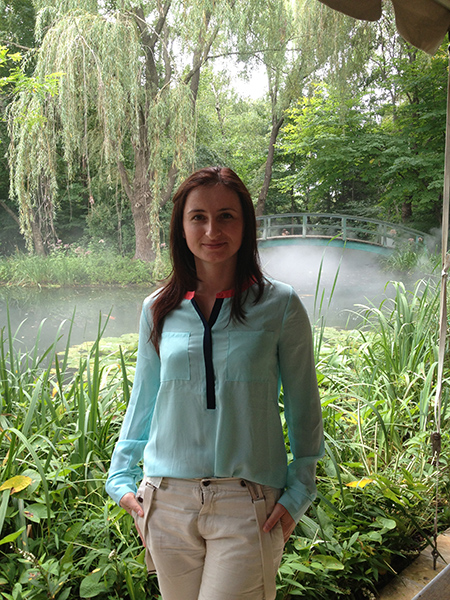In April of 2020, in the midst of the COVID-19 pandemic, Tatsiana Kulakevich, permanent instructor of quantitative research methods at University of South Florida (USF) School of Interdisciplinary Global Studies (SIGS) and research fellow at USF Institute on Russia, penned an analysis in the Washington Post, describing the attitudes of an authoritarian government in Belarus towards the coronavirus.
Kulakevich, who originally submitted her comments on the action – or rather inaction
– of the Belarus government, in mid-April, noted that at the time that there were
just over 5,000 confirmed cases and over 40 deaths. As of June 22, the number of confirmed
cases has climbed to over 59,000, with deaths also increasing more than 350. This
uptick indicates that the Belarusian government has continued to disregard precautions
and further highlights how their lack of response in the initial stages of the pandemic
have had dire consequences for the country’s population.

Tatsiana Kulakevich
In her analysis, Kulakevich notes that even in mid-April, Belarus President Alexander Lukashenka was the only European holdout, continuing to deny the danger that the virus presented. President Lukashenka even boldly stated that nobody would die from the coronavirus in his country and continued to reject any need for lockdown measures adopted by most countries in an effort to contain the spread of the virus. But why would a president put his country’s citizens at risk, rejecting science and standards for prevention?
Kulakevich shared her thought on why this might be. “Belarus has limited economic resources and presidential elections are coming up on Aug. 9 — these two factors may help explain the government’s no-quarantine position. But the country’s unique economic and geopolitical situation also helps explain why autocrats around the world have a wide range of pandemic responses,” she said.
Here is what she says you need to know about this:
Belarus has been coasting on other countries’ efforts
While the government has made minimal effort and financial contributions to “flatten the curve”, neighboring countries closed their land borders in mid-March, helping to slow the spread to the then isolated Belarus.
Belarusian doctors also joined the global effort to #StayAtHome and have been urging the people to stay at home to minimize the number of contacts.
Kulakevich adds “the Belarusian opposition and civil society leaders also called for a ‘People’s Quarantine’ from March 23 through April 30, asking people to stay home, keep their kids home from school and minimize all social contact. Each of these individual measures has helped to limit the spread, despite the limited government response.”
Is the government stalling for time until the election?
In the middle of an election year, one in which Lukashenko is running for his sixth term, it certainly seems likely that his re-election may be bolstered by waiting as long as possible to validate the virus and its spread across the country. But that could prove to a double-edge sword.
“By not labeling the virus as a threat, the Belarusian government diverts attention from its limited capabilities to assist people in need,” said Kulakevich. “The coronavirus remains the root cause for the growing economic hardships, limiting the government’s vulnerabilities to shared and emotionally charged opportunities for protest mobilization triggered by economic factors.”
By emphasizing his personal strength, and ability to fight the coronavirus, Lukashenka seems to be avoiding voter attention to the poor handling of the economy.
Kulakevich notes that this approach may be aimed at minimizing the chances for protests before the election, and avoiding potential clashes with the opposition and negative reactions from the West.
What does this approach tell us about autocracies and global threats?
It’s been suggested that autocratic-minded leaders profit from crises, because emergencies present great opportunities to claim extraordinary powers.
“What’s happening in Belarus suggests governments with concentrated power are interested in maintaining their image and preserving their power, even if their responses are not an efficient or effective way of addressing the coronavirus problems,” adds Kulakevich.
Belarus has long been subjected to state propaganda, of which President Lukashenka has largely been a benefactor. The propaganda shows Lukashenka as a guarantor of order and Belarus as an island of peace and stability amid the disasters raging in the world.
Most notably, Kulakevich says that by officially denying the COVID-19 danger while benefiting from other countries’ response to the coronavirus — and with Belarusians promoting social distancing despite Lukashenka’s denials — the Belarusian government has been able to limit attention to its inability to deliver economic relief to those in need on the eve of the presidential election.
If the pandemic threat resolves before the presidential election, then the government will be able to credit itself with the successful fight against the coronavirus. And if the pandemic continues longer, this approach could well backfire, triggering popular unrest in the country, and jeopardizing relations with the West.